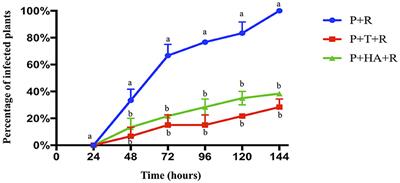EDITORIAL
Published on 28 Aug 2019
Editorial: Harnessing Useful Rhizosphere Microorganisms for Pathogen and Pest Biocontrol - Second Edition
doi 10.3389/fmicb.2019.01935
- 5,181 views
- 29 citations
112k
Total downloads
722k
Total views and downloads
EDITORIAL
Published on 28 Aug 2019
CORRECTION
Published on 11 Jun 2019
ORIGINAL RESEARCH
Published on 29 Oct 2018

ORIGINAL RESEARCH
Published on 22 Oct 2018

REVIEW
Published on 16 Oct 2018

ORIGINAL RESEARCH
Published on 11 Sep 2018

ORIGINAL RESEARCH
Published on 30 Aug 2018

REVIEW
Published on 17 Aug 2018

ORIGINAL RESEARCH
Published on 12 Jul 2018

ORIGINAL RESEARCH
Published on 26 Jun 2018

ORIGINAL RESEARCH
Published on 04 Jun 2018

ORIGINAL RESEARCH
Published on 01 Jun 2018

